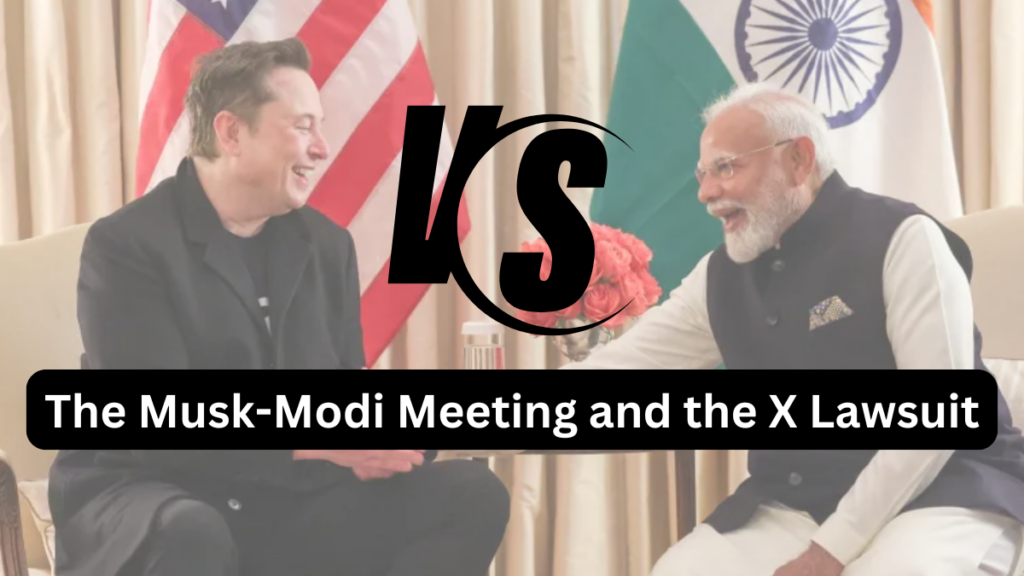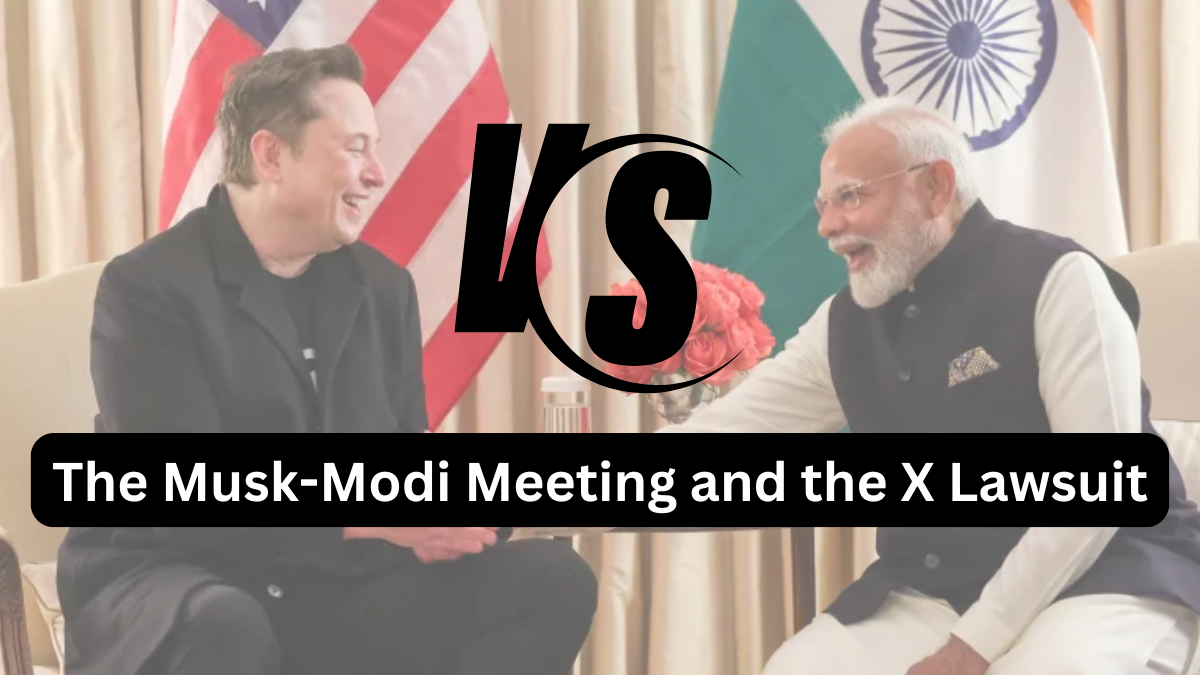In February, during Indian Prime Minister Narendra Modi’s visit to Washington DC, a high-profile meeting took place between Modi and Elon Musk, the CEO of SpaceX and Tesla. The meeting, which also saw Musk introducing Modi to his family, was described by the Prime Minister as “very good.”
While Modi was in the US to meet with President Donald Trump, the meeting with Musk focused on potential collaborations in various fields, including artificial intelligence (AI), space exploration, innovation, and sustainable development. The exchange seemed promising, especially as both parties discussed initiatives that could drive technological advancement globally. However, what seemed like a cordial diplomatic encounter has been overshadowed by a legal battle that could potentially create rifts in India’s digital landscape.

X Sues the Indian Government: The Background
Just weeks after this meeting, Musk’s social media platform X filed a lawsuit against the Indian government, alleging that India is unlawfully censoring content online. Here’s what led to the legal conflict:
Why is X Suing the Indian Government?
X’s lawsuit, filed in March 2025, claims that the Indian government has introduced a “parallel mechanism” to censor content online. The platform argues that this new system bypasses the country’s Information Technology Act (IT Act) and circumvents the judicial process required for content regulation.
According to the IT Act, specifically Section 69A, the government can request the removal of harmful content from online platforms through a judiciary review process. However, India has introduced Section 79 (3)(b), which allows content removal through a simple government-issued notification, sidestepping judicial oversight. This has raised concerns about arbitrary censorship, particularly as government ministries can now remove content without any court involvement.
The Legal Debate: Safeguards or Censorship?
Many argue that the new method lacks necessary safeguards. Apar Gupta, a prominent lawyer and co-founder of the Internet Freedom Foundation, voiced concerns about this shift in content moderation. Under the new mechanism, any government officer, not just a designated one, can send takedown requests, opening the door to potential misuse. The railway ministry’s recent order to remove over 200 videos related to a stampede in New Delhi earlier this year is an example of how this power could be exploited.
The introduction of this mechanism has stirred concerns about the erosion of free speech and the rise of digital authoritarianism. However, members of India’s ruling party, the BJP, maintain that the legal processes in the country apply to all, including global platforms like X.
The Chatbot Controversy: Coincidence or Catalyst?
While the lawsuit itself predates the controversial responses generated by X’s AI-powered chatbot Grok 3, there has been speculation that this might be fueling tensions. The chatbot has stirred controversy by generating content that critics claim is abusive or politically sensitive, especially in its responses regarding Prime Minister Modi.
For example, when asked about Modi’s interview style, Grok claimed that Modi’s answers seemed scripted and on-message, critiquing his public image management. This has led to concerns within the government, although the lawsuit itself was already in motion before Grok’s responses went viral.
Will This Impact X Users in India?
Gupta suggests that it’s too early to predict the lawsuit’s impact on Indian users of X. However, friction between the Indian government and social media platforms is nothing new. While the government has long pushed for content regulation, platforms like X have been increasingly vocal about the need for transparent and accountable content moderation processes.
For now, users in India might witness increased scrutiny of content, but it remains unclear how this legal battle will unfold. One thing is certain, however—this case is a significant chapter in the ongoing debate over digital censorship and free speech in India.
What Does This Mean for Musk’s Business Interests in India?
Despite the ongoing legal dispute, experts believe Musk’s business ambitions in India are unlikely to be seriously harmed. Musk has significant leverage in the country due to his wealth and investments in sectors like telecoms and renewable energy. With plans for Starlink and Tesla to expand in India, his ties to the Indian market remain strong.
The Global Impact: A Blip in US-India Relations?
From a diplomatic perspective, this lawsuit is unlikely to cause lasting damage to US-India relations. The two nations have many tracks of cooperation, and the massive Indian market remains highly attractive to companies like Musk’s. According to Michael Kugelman from the Wilson Center, this legal spat is likely to be seen as a minor issue in the broader context of US-India relations.
FAQs
1. Why did Elon Musk meet with Prime Minister Modi?
Musk and Modi discussed possible collaborations in technology sectors such as AI, space exploration, and sustainable development. The meeting was part of Modi’s US visit to strengthen international ties.
2. What is the X lawsuit about?
X (formerly Twitter) filed a lawsuit against the Indian government, claiming that a new content censorship mechanism violates judicial processes and allows for arbitrary content takedowns without court approval.
3. How does the new content censorship system work in India?
The Indian government introduced Section 79 (3)(b) of the IT Act, which allows content removal through notifications issued by government officials, bypassing judicial oversight.
4. Will this lawsuit impact Musk’s business ventures in India?
Experts believe the lawsuit is unlikely to affect Musk’s business plans in India significantly. His investments in sectors like telecom and renewables give him substantial leverage in the country, and his expansion plans for Starlink and Tesla continue.
This legal challenge represents a critical moment for digital freedoms in India as well as for Musk’s business strategy in the country. Whether it leads to a significant change in how content is regulated remains to be seen, but it’s clear that both X and the Indian government will continue to play an active role in shaping the future of digital policy in the nation.
Pari is a passionate writer known for captivating stories that blend imagination and reality. Inspired by travel, history, and everyday moments, Pari crafts narratives that resonate deeply with readers.




